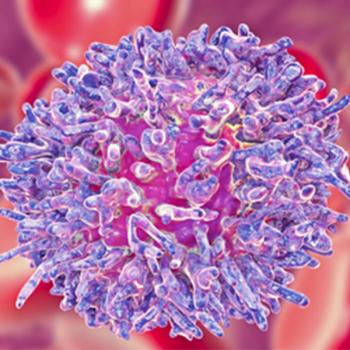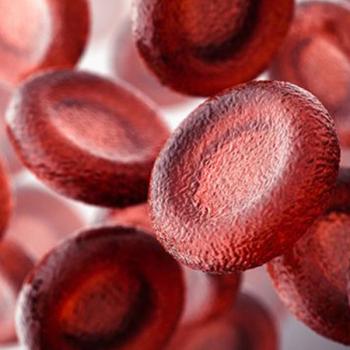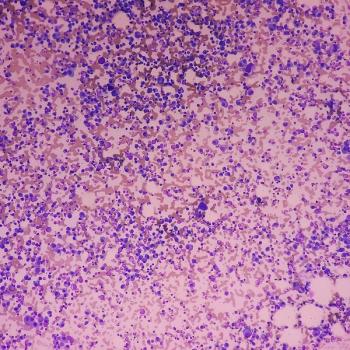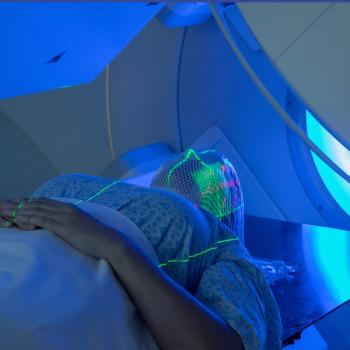
Findings from a small cohort of a phase 2b trial demonstrated 2-year OS benefit in patients with pulmonary metastatic osteosarcoma treated with OST-HER2.

Findings from a small cohort of a phase 2b trial demonstrated 2-year OS benefit in patients with pulmonary metastatic osteosarcoma treated with OST-HER2.

Treatment access can still affect patients in urban communities, said Mary Steinbach, DNP, APRN.


A breast cancer survivorship expert shares her top advice for counseling patients on endocrine therapy at the 5-year mark.

A care model led by advanced practice nurses was feasible in providing supportive care and linking providers through post-trial care transitions.

Maria C. Velez, MD, shared that teamwork between pediatric and adult care teams can make the transition of care smoother for AYA patients.

An observational study found IHC may serve as a biomarker for early detection of TP53‐mutant MDS or AML and prediction of TP53 allelic state.

Michelle Kirschner, MSN, RN, ACNP, APRN-BC, explains how educating patients about the Breast Cancer Index can support informed endocrine therapy decisions.

Treatment decisions for older adults after CDK4/6 inhibitors should be tailored, explained Courtney Moore, APRN, FNP-C, OCN.

The addition of avutometinib to defactinib showed promising safety and efficacy for patients with low-grade serous ovarian cancer.

Experts outline AE risks—including ICANS, CRS, HLH—as T-cell engager use expands, highlighting the crucial role of nurses and APPs.

Heather Jackson, PhD, FNP-BC, NEA-BC, FAANP, explains how a fellowship program sets the tone for how to transition nurse practitioners to oncology.

FDA accelerated approval was given to zongertinib for the treatment of patients with unresectable/metastatic nonsquamous NSCLC with HER2 TKD activating mutations.

Subcutaneous daratumumab offers shorter clinic visits and high tolerability for patients with multiple myeloma, says Stephanie Mompoint, APRN.

This Rx Road Map outlines the most important information nurses should know when treating patients with astrocytoma or oligodendroglioma with vorasidenib.

Ronald Bleday, MD, explained that a model to reduce opioid use in patients after colorectal surgery relies on nurses familiar with the relevant surgeries.

The FDA has granted accelerated approval to dordaviprone for use in adult and pediatric patients with H3 K27M-mutated diffuse midline glioma.

New data showed a 72.2% DOR rate in patients with recurrent low-grade, intermediate-risk non–muscle-invasive bladder cancer who had a CR at 3 months.

For patients with HR-positive breast cancer, adverse effects vary by CDK4/6 inhibitor, says Courtney Moore, APRN, FNP-C, OCN.

Cancer survivors, particularly men, in physically demanding jobs often face pressure to keep working during treatment, says Cathy Bradley, PhD.

Kimberly Podsada, BSN, RN, MSN, NP-C, CNS, explained that understanding a patient’s emotional needs can help educate them on treatment adherence.

Hope S. Rugo, MD, FASCO, outlined the top considerations for nurses managing toxicities related to PI3K and AKT inhibitors in patients with breast cancer.

Nurses should be familiar with PET scan protocol and what to ask patients with lung and bone cancers before administering biology-guided radiation therapy.

Survivorship expert Michelle Kirschner, MSN, RN, ACNP, APRN-BC, says that “doable changes” can enhance the lives of patients surviving cancer.

New FDA approvals in July include therapies for NSCLC, relapsed multiple myeloma, liver cancer, and B-cell malignancies.

Adding aprepitant to chemotherapy was linked to longer survival in patients with non-luminal breast cancers, especially triple-negative breast cancer.

Experienced oncology nurses and APPs can help nurses newer to the field understand who is more at risk of opioid addiction, says expert Ronald Bleday, MD.

Adding sonrotoclax to zanubrutinib led to deep and durable response in relapsed or refractory mantle cell lymphoma, according to EHA Congress data.

Explore essential mental health support strategies for older adults with cancer, addressing grief, community resources, and tailored care approaches.

Oncology nurses can ensure patients with non–small cell lung cancer receive the optimal treatment quickly by understanding comprehensive genomic profiling.